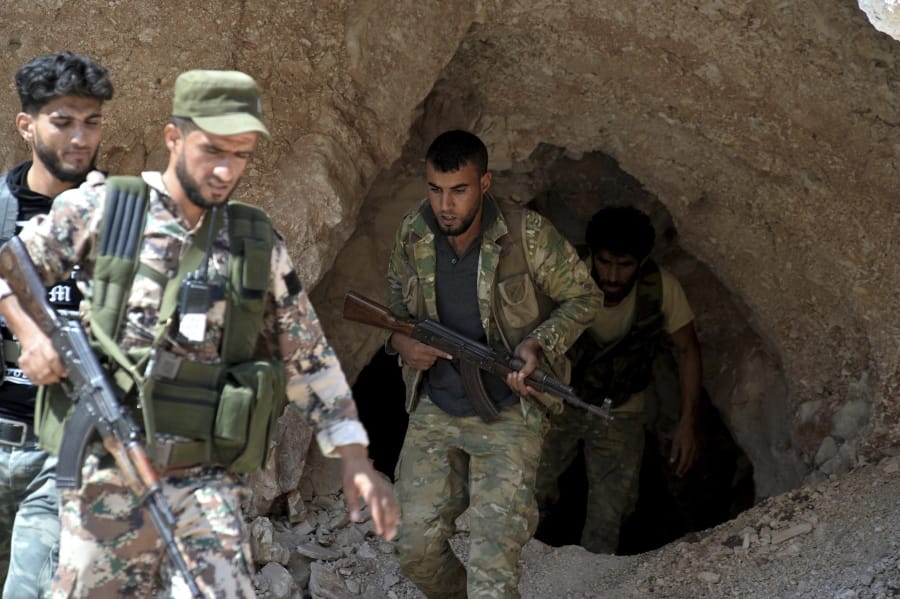BEIRUT — Two months of intensive airstrikes by Syrian government forces and their Russian allies, coupled with a fierce ground assault on rebel-controlled Idlib province, have killed hundreds of people and caused massive displacement while achieving little to no gain for President Bashar Assad.
Despite the heavy bombardment, Assad’s troops have been unable to make any significant advances against al-Qaida-linked militants and other jihadi groups who dominate Idlib province, the last significant area held by opposition forces. Militant attacks have killed an average of more than a dozen soldiers and allied militiamen a day in recent weeks.
The struggling campaign underscores the limits of Syria’s and Russia’s airpower and inability to achieve a definitive victory in the country’s long-running civil war, now in its eighth year.
With crucial military assistance from Russia and Iran, Syrian troops have in the past few years recovered most other opposition-held parts of the country with crushing offensives and long-running sieges. In each of those places, rebels either surrendered or were forcibly exiled to Idlib, where they are now cornered with nowhere left to go. Bitter and desperate, they can only fight to the end. Abu Mohammed al-Golani, the leader of the main al-Qaida-linked group in the region, has called on every able person to “perform his religious duty” and join the fight.



